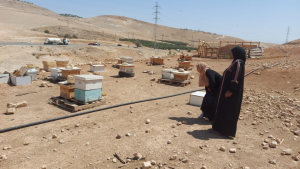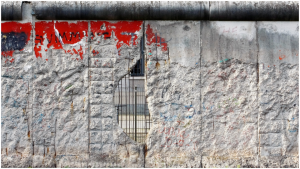Around 60 production workers at the Levi Metal and Wood factory in Mishor Adumim settlement Industrial zone )Area C), decided to put an end to years of employment without job security or wage progression. In July 2025, they joined MAAN and established a workers’ committee. Once about 30 workers – well over the one-third required by law – signed union membership forms, MAAN contacted the company’s management demanding to respect the workers’ decision and open negotiations toward a first collective agreement.
After delays and obstacles, the employer finally agreed to a first meeting at the beginning of August and recognized MAAN as the representative union. The second meeting took place on September 16, at the factory, attended by two company managers, MAAN representative and three committee members. The lawyers of the two sides were also there.
However, immediately after that meeting, the company announced plans to lay off a large group of workers, claiming “downsizing” as the reason. It’s important to note that this issue had never been raised during the meeting. The company also failed to consult with MAAN as required by law before carrying out dismissals as part of this downsizing. Also MAAN objected to the fact the dismissals included eight veteran workers on the layoff list — while still employing temporary contract workers.
In response to this unilateral move, MAAN filed a petition with the Jerusalem Regional Labor Court, demanding an immediate halt to the layoffs, particularly of the senior employees. At the September 30 hearing, Judge Moshe Williger accepted both of MAAN’s claims, and accordingly suggested that the two parties agreed to hold further talks — both on the need for downsizing and on fair layoff criteria.
The meeting to discuss these issues, took place on October 15, as agreed in court. But once again as MAAN’s chief negotiator Yoav Gal Tamir and the union’s lawyer, Amir Basha, left the plant in Mishor Edomim the employer acted unilaterally and in violation of its legal obligations. On the very same day Oct. 15 the employer handed letters of invitation to hearing before the dismissal to 10 workers – 4 of them work in the company for years. MAAN objected vehemently and for a while it seemed as if the company decided to back off.
However on October 22, MAAN learnt that the management informed three out of the 4 senior workers that they were being dismissed on false grounds of “inefficiency.” In addition, two members of the workers’ committee were summoned for a “disciplinary hearing” on baseless accusations that they had threatened contract workers.
MAAN and the workers understood the message: the company has no intention of negotiating a collective agreement — its real goal is to break the union. Its method is to intimidate and punish workers in order to deter others from joining MAAN.
In light of these punitive measures and threats, an assembly of all workers was held on October 22 with MAAN representatives Yoav Gal Tamir, Othman Gharabat, and Eden Lichtner. The meeting, held after the workday, was marked by complete unity against the employer’s anti-union actions.
MAAN’s proposal to declare a labor dispute and strike was unanimously approved by the workers. Following the decision, the national MAAN committee formally ratified the declaration. On October 23, official notices were sent to the Ministry of Labor’s labor relations officer and to company management. At the same time, an update regarding the dismissals was submitted to the Labor Court, which set a hearing for November 2.
Under Israel’s Settlement of Labor Disputes Law (1957), Section 5A, a union that declares a labor dispute must wait 15 days before initiating a strike. This means that Levi Metal and Wood Ltd. still has a chance to reverse its aggressive and unlawful steps and sit down for genuine negotiations with MAAN and the workers.
If the company chooses this path, constructive dialogue can benefit both sides.
If not, a strike will be inevitable — and production at the company will come to a halt.








